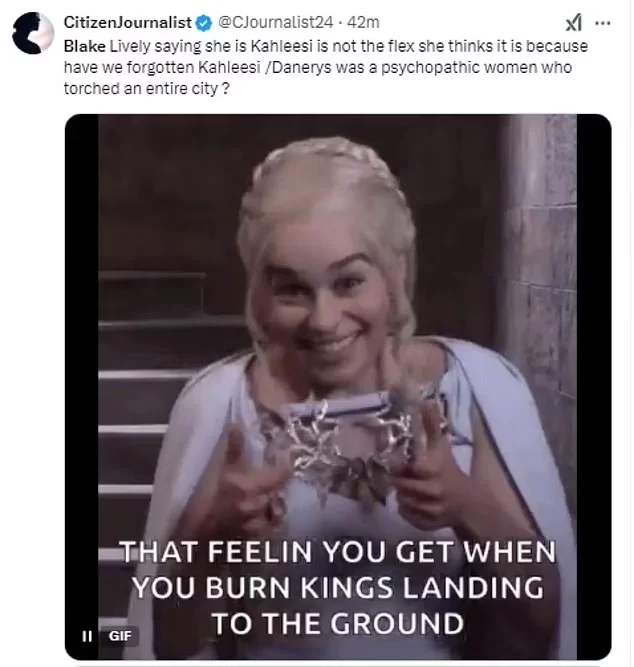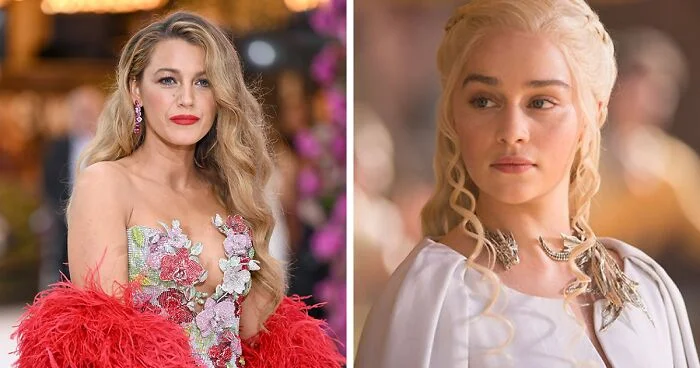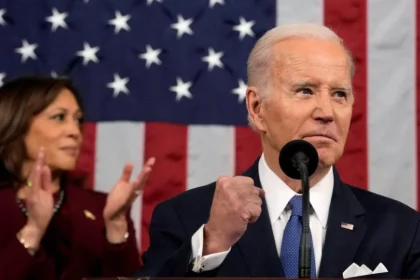Blake Lively has come under fire from Game of Thrones fans after she drew a comparison between herself and Daenerys Targaryen, the iconic “Mother of Dragons” from the hit HBO series.
The controversy erupted after Lively’s It Ends With Us co-star, Justin Baldoni, submitted alleged private messages from the actress as part of a $400 million lawsuit filed against her and her husband, Ryan Reynolds.
In the messages, Lively reportedly told Baldoni that if he ever watched Game of Thrones, he would “appreciate that I am Khaleesi.” She went on to write, “My dragons also protect those I fight for. So, we all benefit from those gorgeous monsters of mine. You will too, I can promise you.”
Fans React Harshly Online
The texts, which went viral after being revealed in court filings, sparked a wave of criticism from Game of Thrones fans on social media. Many slammed Lively for comparing herself to one of the series’ most polarizing characters.

“Blake Lively is not only a fake person but a crazy fake person. She has no dragons and she is not Khaleesi. Not even close,” one user wrote.

Another fan remarked, “Blake Lively saying she is Khaleesi is not the flex she thinks it is. Have we forgotten that Khaleesi/Daenerys was a psychopathic woman who torched an entire city?”
A third added, “The fact that #BlakeLively refers to herself as Khaleesi from #GOT is kinda nuts. Did she miss where Daenerys became a villain at the end of the series?”
Legal Challenges Continue
The backlash comes amid mounting legal troubles for Lively. Baldoni’s latest court filings, dated January 16, include claims from his legal team that the actress requested to “take a pass” at rewriting a key scene in their upcoming film. The scene reportedly involves their characters meeting on a rooftop early in the movie.
While Lively has yet to publicly address the controversy, the Khaleesi comparison and its fallout have added to the scrutiny surrounding her involvement in the legal dispute.
As fans continue to debate her remarks, the Green Lantern star faces a challenging time both in the court of law and the court of public opinion.




